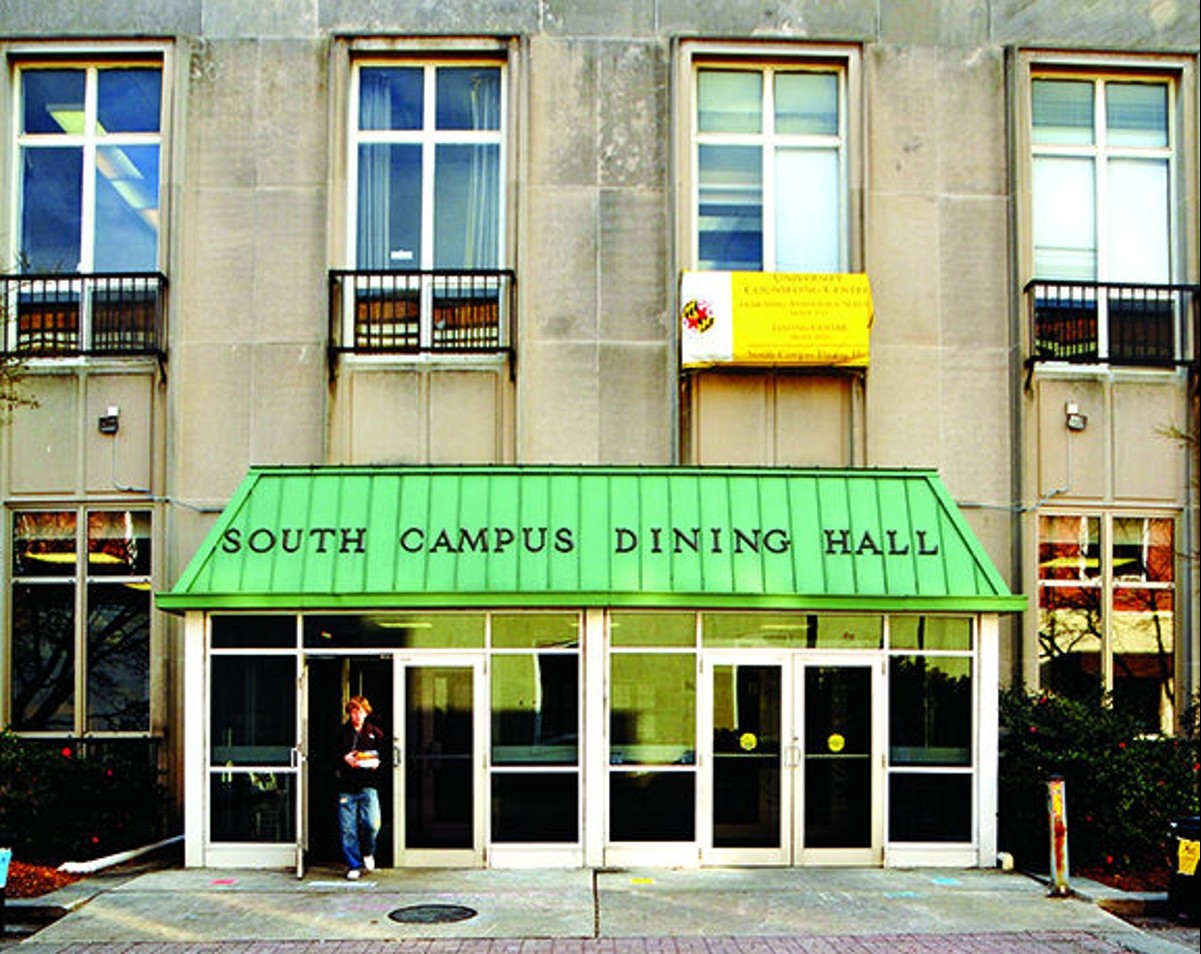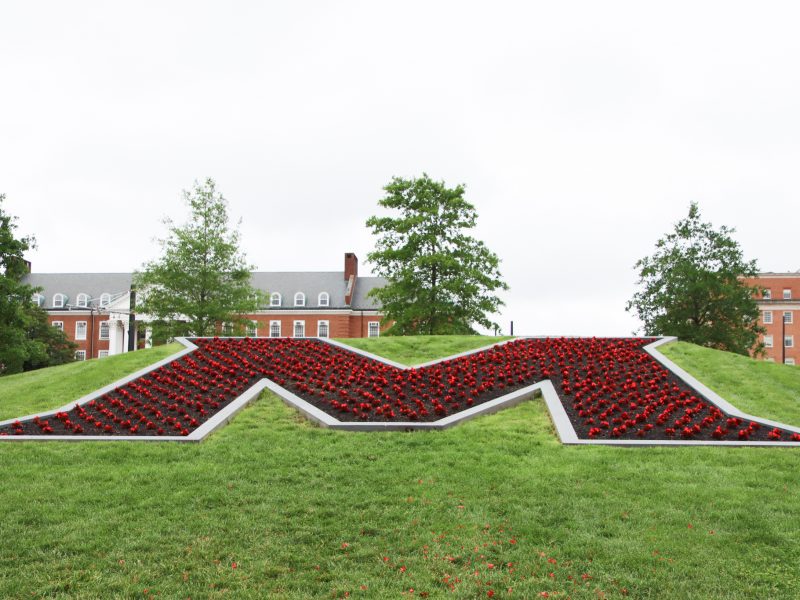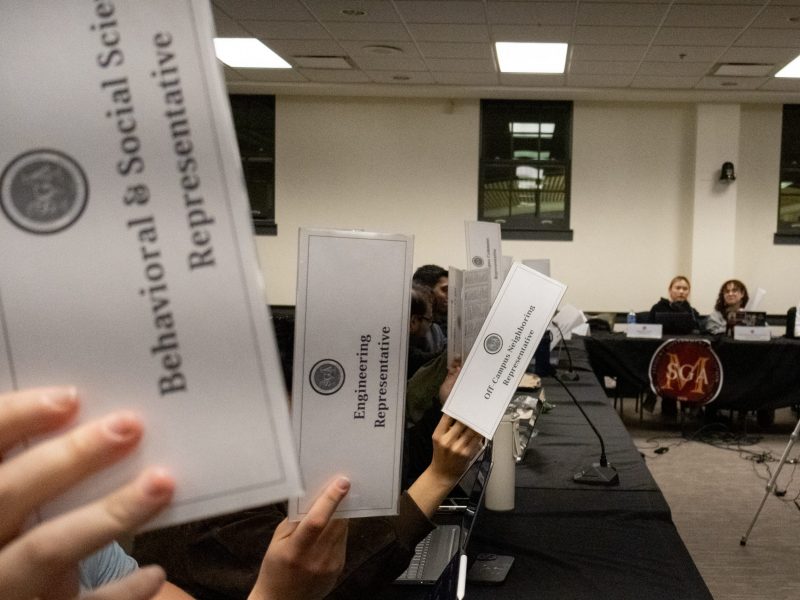The Student Facilities Fund is reviewing a proposal from Dining Services administrators to provide money to renovate the South Campus Dining Hall bathrooms, which are not handicap-accessible or gender-inclusive.
Joe Mullineaux, senior associate director of Dining Services, said the department has been saving up money to complete the updates for five or six years.
“Right now, to get to an ADA-accessible restroom in South Campus, you have to leave the dining room, get on an elevator and go to the third floor,” Mullineaux said. “It meets code, but it’s not very friendly.”
[Read more: The South Campus Dining Hall could get a gender-inclusive bathroom]
Mullineaux said the dining hall needs complete bathroom renovations and a wheelchair lift from the cafeteria area to the second floor, where the bathrooms are located. To make them gender-inclusive, they would convert what is now the men’s bathroom to a gender-neutral bathroom, similar to the gender-neutral restroom outside the Maryland Co-op in Stamp Student Union.
Dining Services estimated renovations would cost about $200,000 and saved $250,000 in preparation for the project, but Facilities Management estimated the investment would require about $485,000, Mullineaux said. The dining hall is requesting the $235,000 difference from the Student Facilities Fund.
Mullineaux said it would be at least another year before the dining hall could take action on renovations if Dining Services’ proposal is denied, because the university has to tend to facilities according to their urgency.
“There’s a whole lot of areas that they have to address that don’t meet code, before they would come to a place that we’re just trying to make more friendly,” Mullineaux said.
[Read more: Maryland Stadium and Xfinity Center are getting gender-inclusive family restrooms]
Andrew Stover, a sophomore public policy major who sits on the Student Facilities Fund subcommittee, sponsored a bill last Wednesday that sought the SGA’s support on behalf of the group. The entire body voted 27-0, with 6 abstentions, to support the fund approving the money.
“This is a pot of money that the students pay into, and it is ultimately their money,” Stover said. “The university does have a responsibility to maintain their buildings and make sure they are accessible to everyone, but at the same time, those bathrooms also need renovations, and it might be a very long time to get that done unless we take action right now.”
Noah Eckman, chair of the Student Facilities Fund subcommittee, said the price tag for this renovation would be less than 10 percent of the existing money. The fund, which is predicted to receive about $560,000 each year, is supported by the student fee for capital improvements according to its website, and currently has about $2.9 million that the committee can use to support student initiatives.
Jonathan Allen, the SGA’s speaker of the legislature, was concerned about the precedent this would set, though he said he supported the bathroom renovations. He said he was worried this would eliminate non-legally required repairs from the university’s to-do list.
“What ends up happening is that the students take the burden with the fees … and the money that we pay … is being used to do things that, in my eye, the university should really be taking care of,” Allen said.
Eckman said the fund is meant to go toward “student-supported facilities projects and improvements that will positively impact and enhance the student experience.”
The committee’s recommendations are due by the end of the month, with the final decision from the University Facilities Council coming in May.
If the proposal is accepted in May, Mullineaux said the renovations could be done before the start of the fall 2018 semester.



